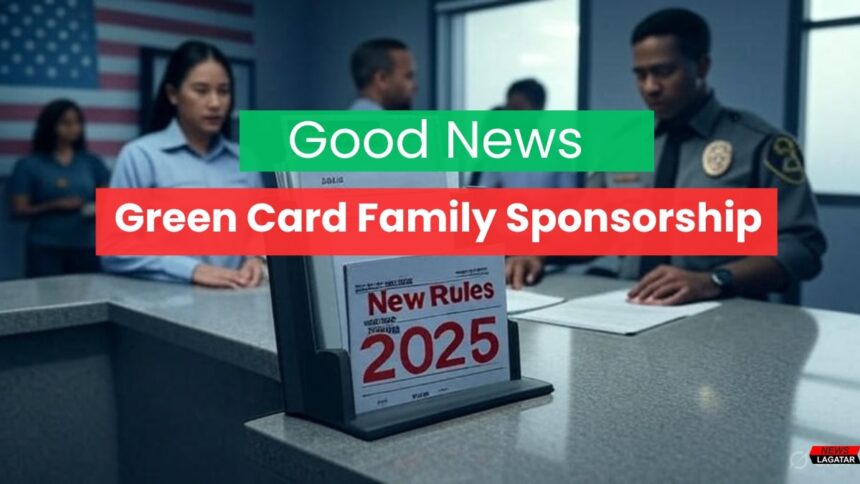Introduction Green Card Family Sponsorship
In a significant move, the United States has updated its immigration rules for Green Card Family Sponsorship. Green card holders who wish to bring their relatives to the U.S. must now meet new requirements under the revised USCIS policy. These changes are part of a broader effort to reduce fraudulent family-based petitions and ensure the integrity of America’s immigration system.
What’s New in USCIS Policy?
The U.S. Citizenship and Immigration Services (USCIS) has released updated policy guidance in its official Policy Manual (Volume 6), which takes effect immediately. It applies to all pending and newly filed petitions for family-based immigration.
The updates primarily affect the eligibility criteria, documentation requirements, interviews, and adjudication process for Green Card Family Sponsorship petitions. The goal is to ensure that every family relationship is genuine, verifiable, and legally compliant.
What is Green Card Family Sponsorship?
Green Card Family Sponsorship allows lawful permanent residents (LPRs), also known as green card holders, to sponsor eligible foreign relatives to become permanent residents in the U.S. This is done through Form I-130 (Petition for Alien Relative).
Eligible Relatives Under This Process:
| Sponsor Status | Eligible Family Members |
|---|---|
| U.S. Citizens | Spouses, children, parents, and siblings |
| Green Card Holders | Spouses and unmarried children |
Why the Changes?
Family-based immigration forms a large part of legal migration to the U.S., with about 40% of all green cards granted to immediate relatives. However, fraudulent or frivolous Green Card Family Sponsorship petitions have become a growing concern. These undermine the credibility of the process and harm genuine family unity.
To address this, USCIS has enhanced its vetting procedures to detect and prevent fraud, particularly in cases involving fake marriages or misrepresented relationships.
Key Highlights of the New Rules
| Category | Updated Policy Details |
|---|---|
| Eligibility Requirements | Stricter criteria for verifying genuine family relationships |
| Interview Guidelines | Increased chances of mandatory interviews for Green Card Family Sponsorship cases |
| Form I-130 Filing | New documentation requirements and proof of relationship |
| Multiple Petitions | New rules for handling more than one petition for the same beneficiary |
| Notice to Appear (NTA) | USCIS may issue NTA if a beneficiary is found removable |
| Direct Filing with DOS | Clarifies when Form I-130 can be filed with the U.S. Department of State |
| National Visa Center (NVC) | New guidelines on routing petitions to NVC |
| Government & Military Filings | Special procedures for petitions filed by U.S. military or government personnel |
| Petition Denials & Appeals | New structure for petition adjudication and denial process |
| Fraud Prevention Measures | Stronger verification and monitoring mechanisms |
Legal & Technical Revisions
The new USCIS guidance updates multiple sections in Volume 6 > Part B (Family-Based Immigrants) of the Policy Manual:
- Chapter 1: Updated purpose, legal basis, and background
- Chapter 2 & 4: Newly added content for general eligibility and documentation
- Chapter 3: Revisions on Department of State filing authority and multiple petitions
- Chapter 5: Overhaul of petition adjudication procedures
What Applicants Should Know
If you’re considering Green Card Family Sponsorship, here’s what you should do:
- Review the updated USCIS Policy Manual
- Collect strong documentation (marriage certificates, photos, communication records, etc.)
- Be prepared for an interview to prove the legitimacy of the relationship
- Understand that a petition doesn’t guarantee immigration status — it must meet all criteria
Conclusion
The USCIS has reinforced its rules to ensure that Green Card Family Sponsorship remains a trustworthy path to U.S. immigration. These new rules emphasize authenticity, legal compliance, and national security. Applicants must now take extra care to file proper documentation and meet all updated requirements.
By adhering to the revised rules, you improve your chances of a successful outcome while contributing to a more secure and fair immigration system.






